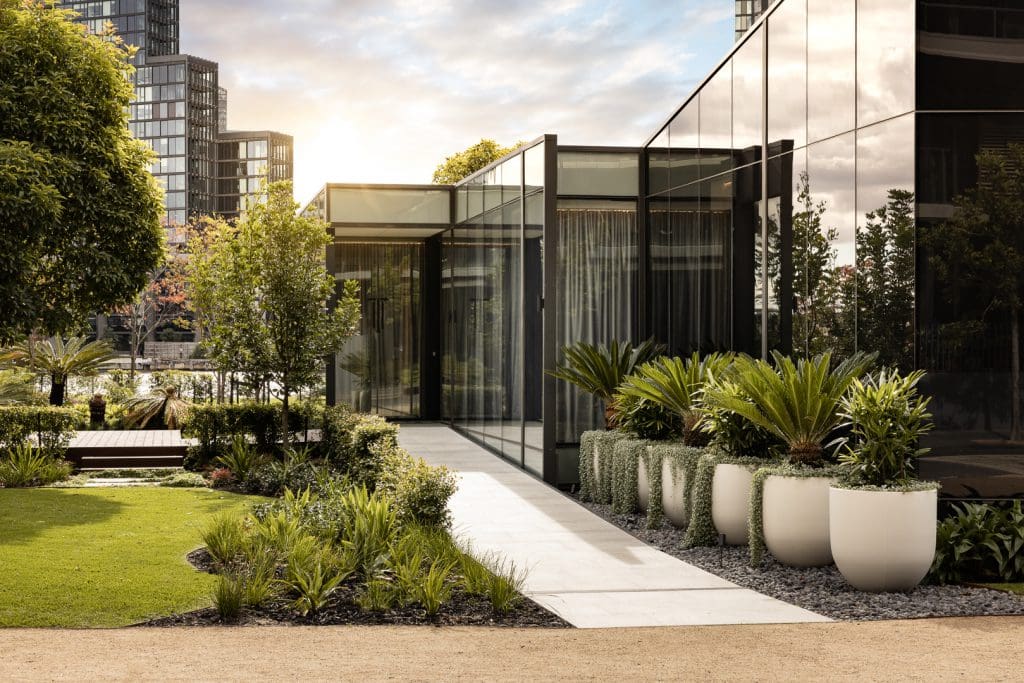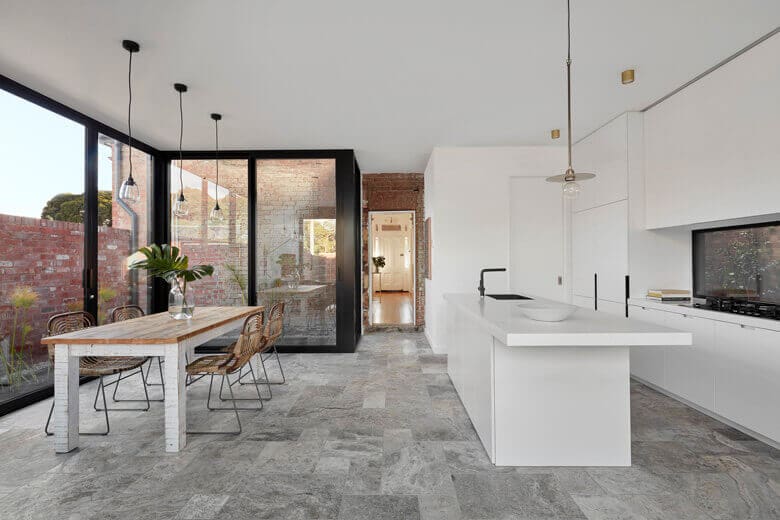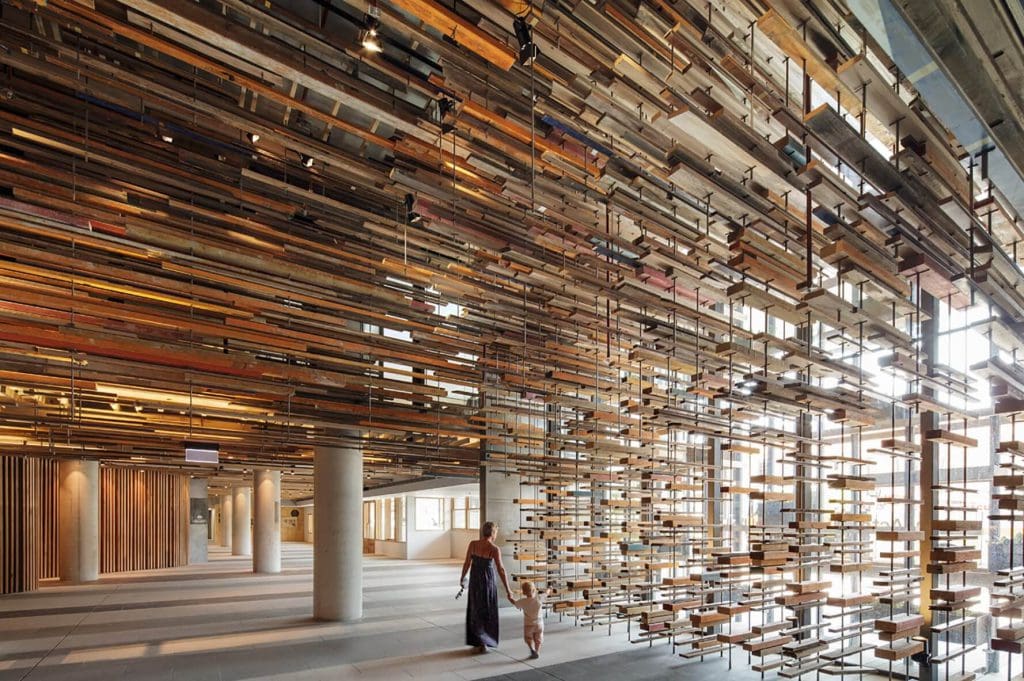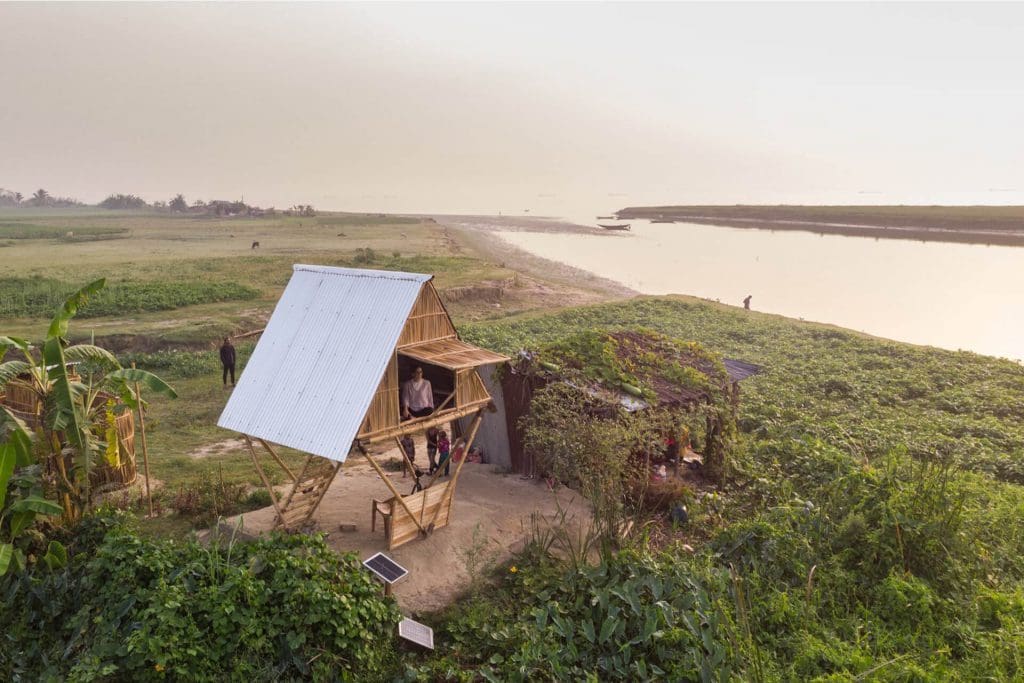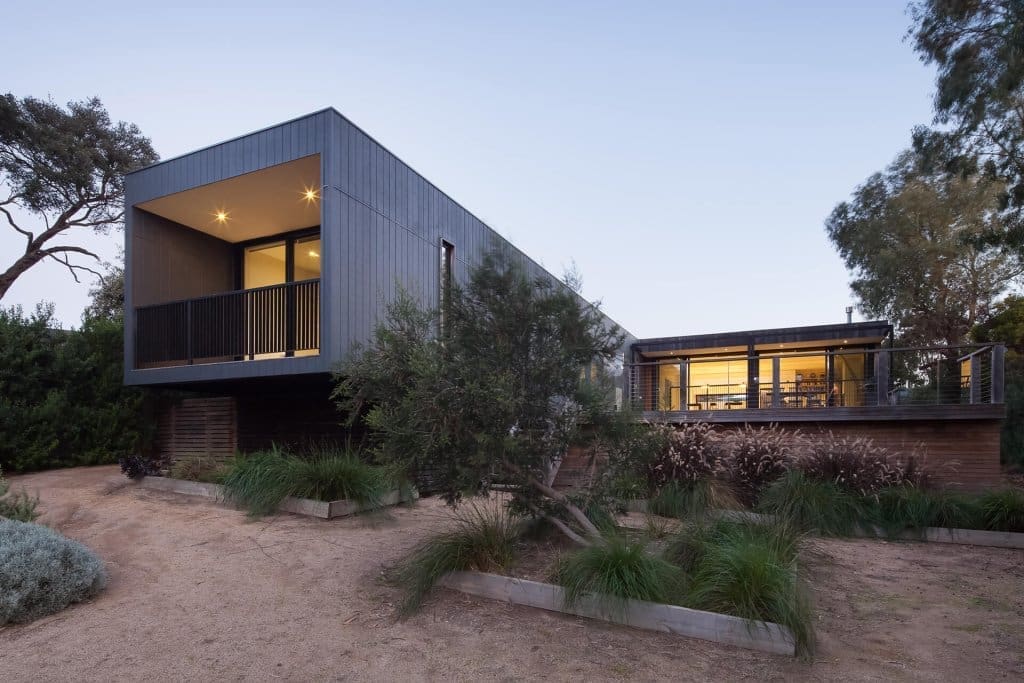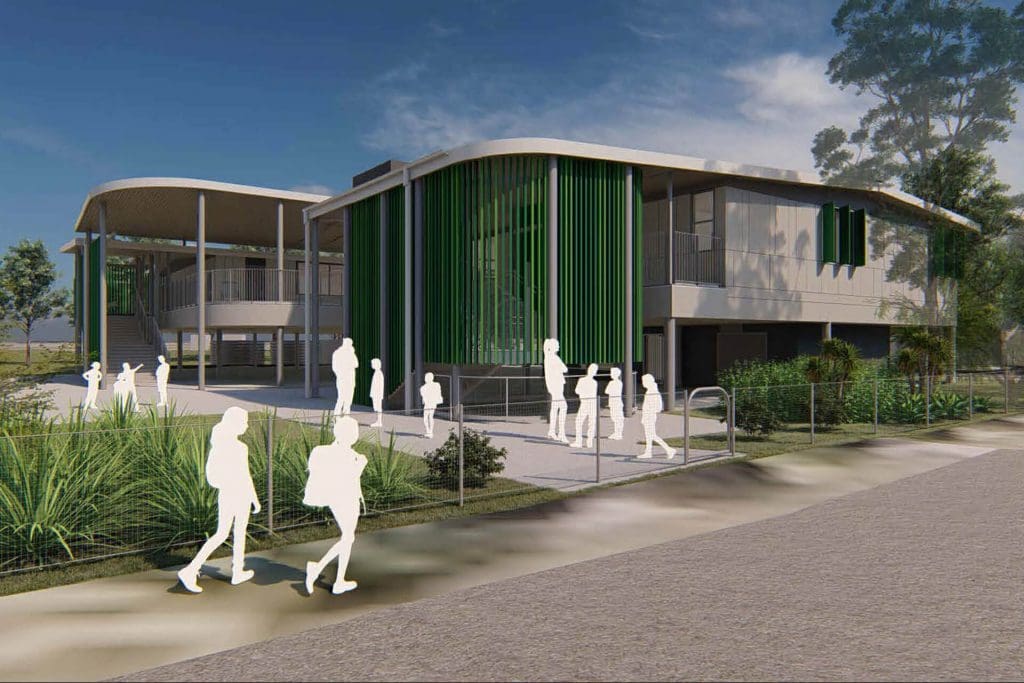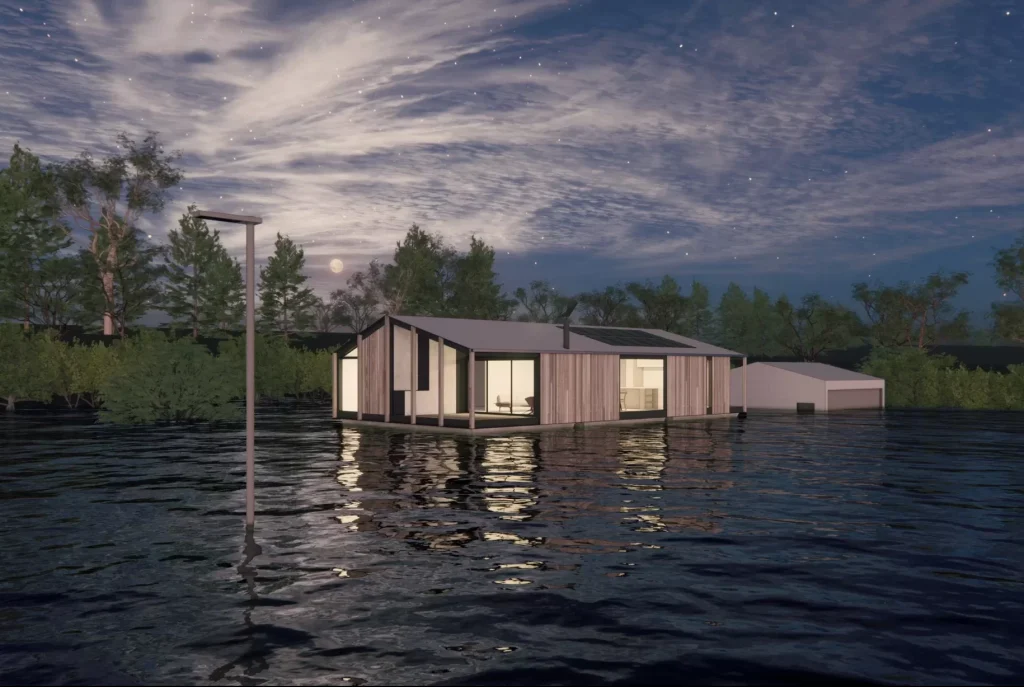The Building Method Helping Hotels Open Faster
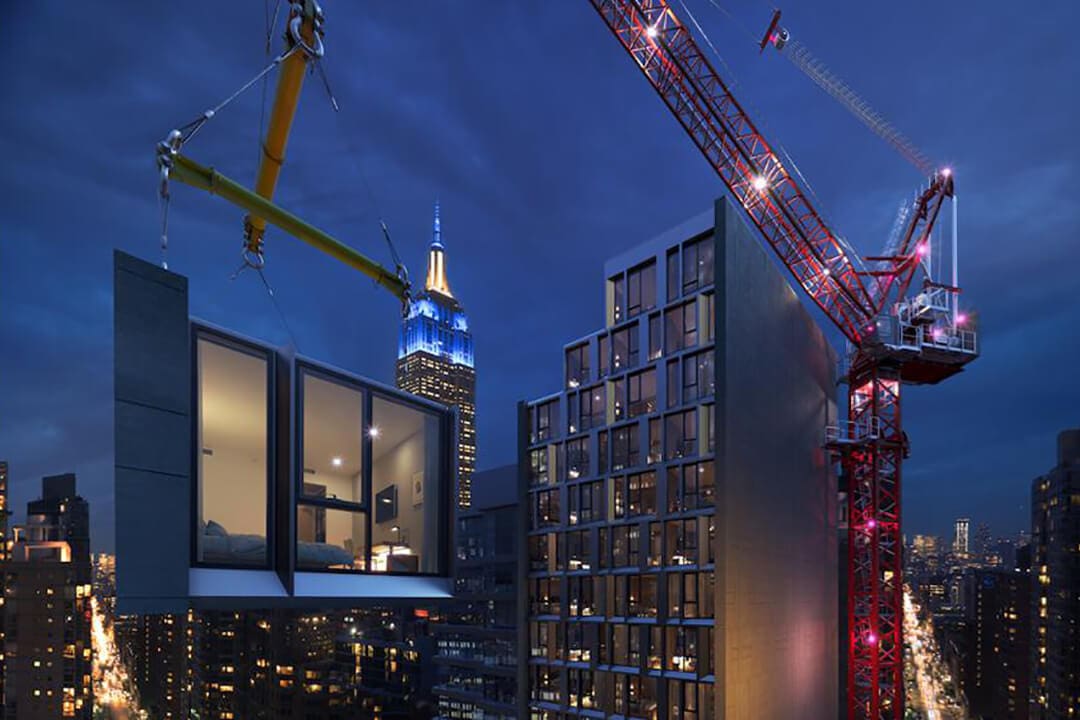
For the hotel industry, business begins the second land is secured. Every choice following that purchase influences not only the clientele and their flow, but when income from rooms will begin to be generated. And it is predominantly for this reason that Marriott International, the largest hotel chain in the world, made the decision to adopt modular building methods for 40% of its projects.
“Marriott began researching modular construction in 2014 to offset lengthening hotel construction times,” says the hotel chain. “By working with our pre-approved modular partners, owners can open hotels faster, put associates to work earlier and generate revenues sooner. It’s another example of Marriott’s focus on optimising our partners’ return on investment,” explains Eric Jacobs, Marriott International’s Chief Development Officer of Select Brands, North America.
Due to modular’s off-site nature, the construction timeline is sped up drastically – up to 50%1 – when compared to traditional building methods. Building construction is able to occur simultaneously to on-site works, while multiple stages of a building, and the development of multiple buildings, can occur concurrently. In addition, modular companies that construct within a controlled factory environment also have the advantage of eliminating any weather delays.
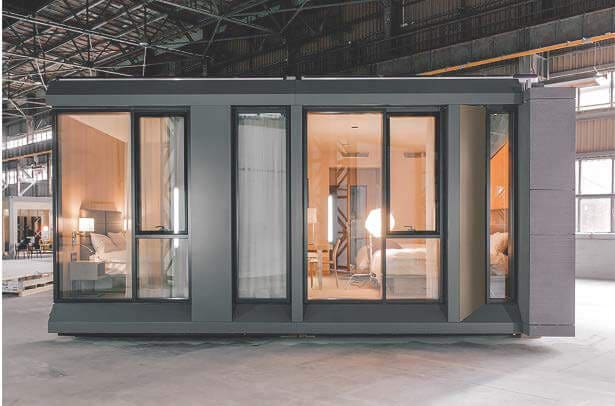
Twenty-Six Storeys, Built in Just 90 Days
At present, Marriott is building the tallest modular hotel in the world – a $64 million, 26-storey tower that will be erected in just 90 days, thanks to the modular method in which it is built. Located in New York, it is set to open later this year and will include 168 rooms and a bar at its rooftop.
“This will represent a milestone for Marriott’s ongoing initiative to encourage hotel developers in North America to embrace modular for new construction projects,” Marriott says. “In North America, the construction process hasn’t changed significantly in 150 years and it’s ripe for innovation,” says Jacobs. “The world’s tallest modular hotel in one of the world’s greatest destinations will act as a game-changing symbol to ignite even greater interest in modular among the real estate and lending industries.”
“This is the moment where modular construction takes center stage,” says Danny Forster, whose firm, Danny Forster & Architecture, designed the project. As he explains it, “This hotel takes every advantage of off-site manufacturing. We wanted to demonstrate that modular building can do more than just harness the efficiencies of the factory. It can produce a graceful and iconic tower. And yes, it can do so at the rate of an entire floor a day.”
Generating Income Two Months Ahead of Schedule
For Marriott, modular construction can’t have its praises sung loud enough, and for good reason. For years, the hotel has been working with businesses, architects, consultants and contractors to educate them about the benefits of modular via town halls, factory tours and other events.
The adoption of modular construction methods means elements (such as bathrooms), entire rooms or the whole building itself are built off-site in a factory while works occur on-site at the same time. This alone speeds up the build timeline, while the controlled environment in which the build is constructed speeds it up even further – unaffected by weather, the project can be completed in a third of the time when compared to traditional building methods, says Richard Harris, Head of Capital Work Services EMEA at JLL.
Once complete – and we mean complete: Marriott’s rooms are arriving with beds, sheets, pillows, flooring and even toiletries – the modules are transported to site and craned into place. This element of the project can take as little as one night, depending on the size of the project.
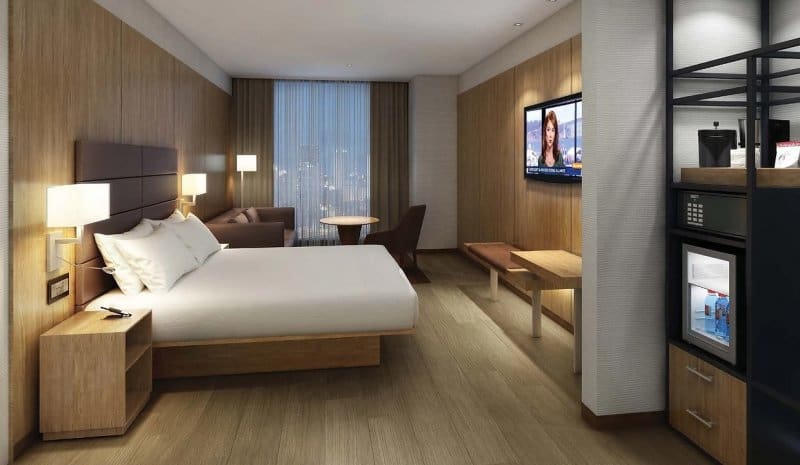
Prior to its work on the tallest modular hotel, Marriott and its development partners have opened more than 35 hotels under its modular building initiative, including the 97-room Folsom Fairfield Inn & Suites in California. Thanks to its modular method of construction, the project was opened just seven months after gaining the building permit – an impressive five months ahead of traditional building estimates. This allowed the owner to generate revenue even sooner than expected, which then opens up the ability to refinance and take the equity into a new project faster, snowballing a sped-up income.
Marriott is not the only hotel to embrace the benefits of modular, however. In 2016, Hilton announced it would build Africa’s first modular hotel with the 280-room Hilton Garden Inn in the Ghanaian capital of Accra, as well as two more large modular projects on the continent.
In Australia, Modscape is able to construct entire hotels in just 12 weeks thanks to its modular approach and off-site factory, which centralises and streamlines all work while eliminating any weather delays. For Melbourne’s St Kilda Apartments, it was transformed from six storeys into eight in just a few hours.
Pioneering the Australian industry back in 2007, Modscape utilised modular construction for works on an accommodation building in East Melbourne, adding a new penthouse and pergola (all built in just 12 weeks), right down to the appliances. The 135sqm new level was installed in under three hours, allowing the owners to begin profits months ahead of their original plans.
The Future of Modular Hotels
“Construction is the next frontier for innovation, and modular is leading the way,” says Jacobs. While modular construction has been popular in Europe for many decades, this innovative way of building is just beginning to pick up in places like the States and Australia, and has the opportunity to make a big impact on many sectors, not least of all the hospitality industry.
“Modular builds are more efficient and environmentally friendly than traditional builds – they consume half the energy, produce half the waste, and take at least a third of the time,” Richard Harris, Head of Capital Work Services EMEA (Hotels & Hospitality) at JLL says.
In the words of Marriott’s International’s Senior Vice President of Global Design Strategies, for the hotel industry, modular is a real game-changer.
1 Bertram N et al., Capital Projects & infrastructure: modular construction: from projects to products, McKinsey & Company, 2019.

